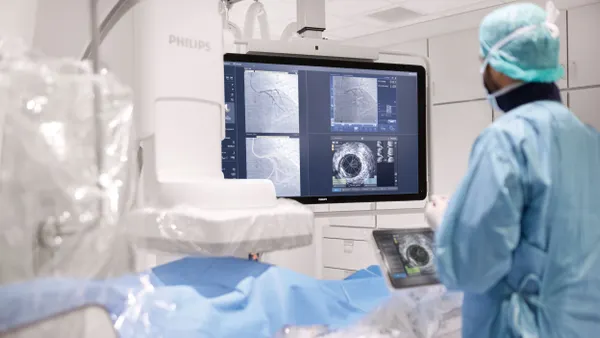Dive Brief:
-
FDA has authorized a medical device to protect athletes' brains from the effects of repetitive subconcussive head impacts, amid rising concerns in recent years of the effects on the brain from football and other high-contact sports.
-
Q30 Sports Science developed the Q-Collar to reduce the incidence of traumatic brain injury (TBI) in athletes. The C-shaped, neck-worn product applies force to the neck to limit the movement of the brain during head impacts.
-
FDA authorized the device through its De Novo pathway on the strength of data from studies including a prospective trial that linked Q-Collar to reduced changes to parts of the brain that transmit electrical nerve signals.
Dive Insight:
A CDC analysis found 2 million children visited an emergency department due to a TBI sustained during sports and recreation activities from 2010 to 2016. TBI can have emotional, physiological and cognitive effects. Negative health outcomes can stem from subconcussive injuries that alter tissue but do not cause diagnosed concussion.
The device is intended to protect athletes from those subconcussive injuries, applying compressive force to the internal jugular veins, thereby increasing the volume of blood in the vessels of the skull. The additional blood restricts the movement of the brain inside the skull. As the brain moves less, it may be protected from the negative effects of the "slosh" movement that occurs in unprotected athletes who suffer head impacts.
Researchers ran studies in multiple sports including hockey and soccer to evaluate if Q-Collar has the desired protective effect. FDA evaluated several assessments of the device in its De Novo review and cited a prospective longitudinal study of 284 U.S. football players aged 13 years and older as an important contributor to understanding about Q-Collar.
All participants wore an accelerometer to measure head impacts. Around half of participants also wore Q-Collar. Investigators performed MRI scans on all participants before and after the season to create Diffusion Tensor Images. The specialized type of MRI enables the comparison of structural changes to the brain.
In the control group, 73% of participants experienced significant changes to the white matter parts of the brain involved in the transmission of electrical nerve signals over the course of the season. Only 23% of participants in the Q-Collar group suffered such changes, leading FDA to state the "differences appear to indicate protection of the brain associated with device use."
No significant adverse events were linked to the device. However, FDA is advising against the use of Q-Collar in people with certain conditions, including increased pressure in the skull and known seizure disorders.











